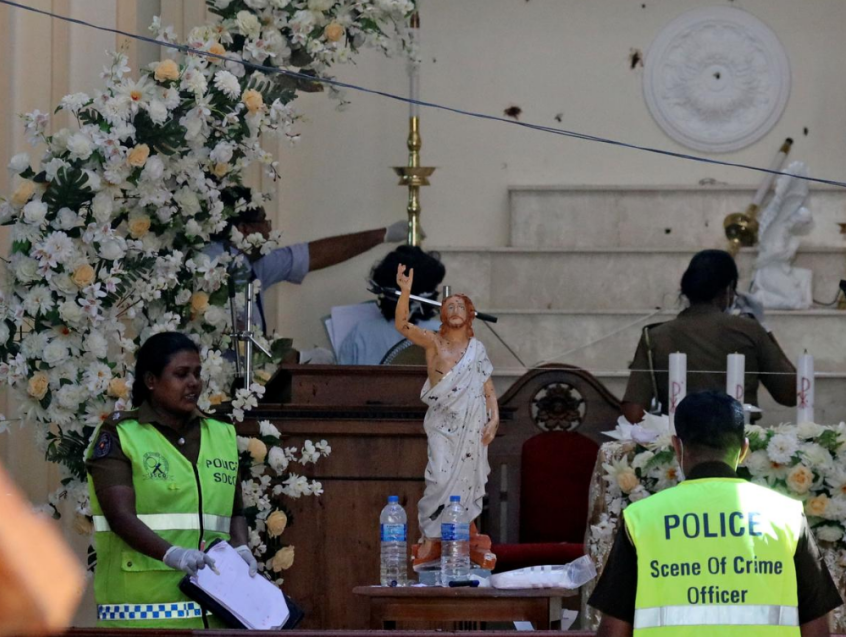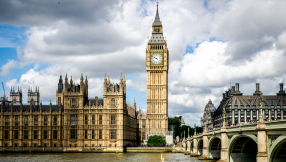
People in the west are reluctant to talk about Christian persecution because they fear it could be used "as an alibi for Islamophobia", says priest and broadcaster Giles Fraser.
Writing in the Guardian newspaper after Easter Sunday attacks on Sri Lankan churches, Dr Fraser questioned why there was often "deafening silence" from the west despite Christians being the most persecuted religious group in the world.
He contrasted the lack of media coverage on the plight of Christians in places like North Korea and the Middle East, where they have been "all but driven out", with the media frenzy over the fire at Notre-Dame Cathedral last week.
"We are living though one of the most serious phases of Christian persecution in history, and most people refuse to acknowledge it," he said.
"Why no outrage? Yes, these horrendous murders will make the press for a day or two – but we generally care more about the fire in a famous cathedral than we do about those people who have their bodies blown to bits in architecturally less significant places of worship."
He suggested that it may be connected to unfavourable perceptions of Christianity.
"Why the blind spot – especially given that we do care about so many other forms of oppression?" he continued.
"No, it's not a competition. But I do wonder whether on some unconscious level the secular and broadly progressive west thinks that Christianity had it coming. They associate Christianity with popes and their armies, with crusades and inquisitions, with antisemitism, British imperialism, Trump supporters and abortion protesters."
Christians in the west have not helped matters by claiming persecution after some "minor run-ins" with the law, he said, referencing the arrest of street preachers and legal battles between bakers and gay couples over cake orders.
He said that describing such incidents as persecution had "debased the word" and "made it sound like a manipulation designed to reclaim some lost place in the culture".
"Moreover, porky and pink-faced bishops in the House of Lords do not look like a persecuted species, and so when they talk about Christian persecution they look faintly ridiculous," he said.
He said that in some cases, the reluctance to speak out about Christian persecution may be rooted in a fear of being lumped together with anti-Muslim racists.
"And maybe there are some who don't want to talk about Christian persecution because they fear that it could easily be used – as it sometimes is – as an alibi for Islamophobia," he said.
"Easier to fall silent about the murder of Christians than to be seen to side with those racists who blame Muslims for everything. I understand this – but it's still not good enough."
He concluded by saying that regardless of persecution and attacks, Christians would continue to proclaim their faith "most insistently" because of their belief that "love will ultimately triumph over hate".
"And this means that we believe terrorism can never quench the proclamation of the good news of Easter. At Easter, darkness doesn't have the last word," he said.
"That is why people were going to church in Sri Lanka in the first place, to listen again to this message: Christ is risen. Allelujah."













